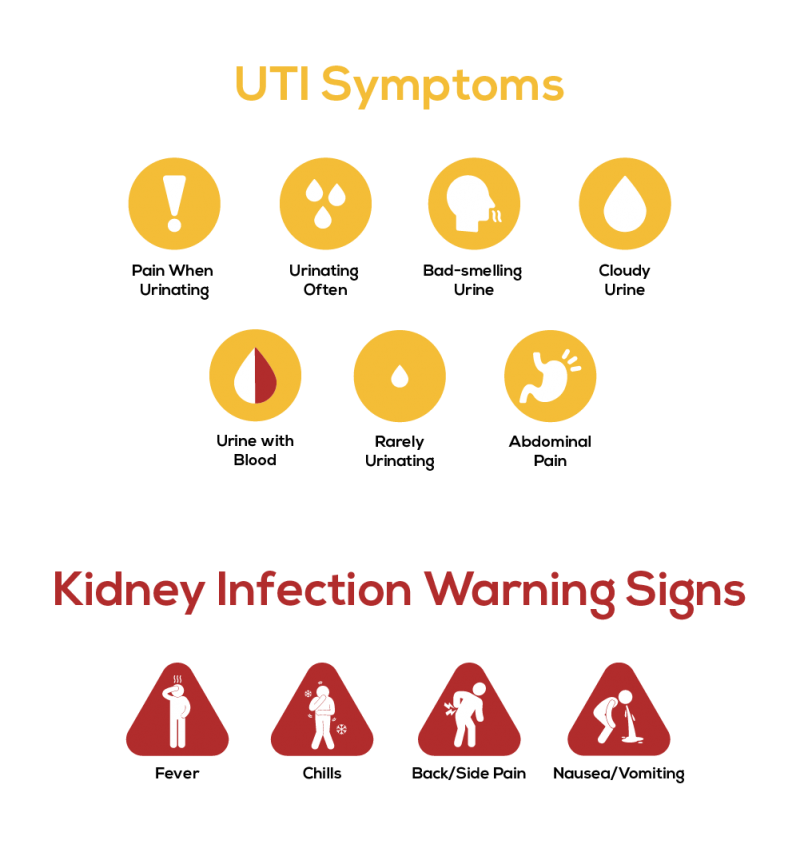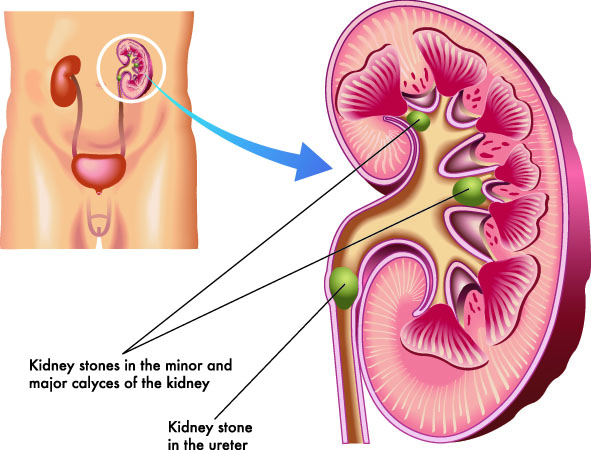Comprehensive Guide to Kidney Stones vs UTI: Medical Diagnosis, Triggers, and Relief
Comprehensive Guide to Kidney Stones vs UTI: Medical Diagnosis, Triggers, and Relief
Blog Article
Exploring the Effects and Causes of Kidney Stones in Comparison to Urinary System Infections: A Detailed Overview
The expedition of kidney stones and urinary system system infections (UTIs) reveals an intricate interplay of signs and underlying reasons that warrant cautious examination. While both conditions can cause hematuria, they offer distinct scientific attributes and arise from different etiological aspects. Recognizing the nuances of each condition is vital for reliable diagnosis and management. What are the essential distinctions in their signs and symptoms, and how might these notify treatment methods? The solutions to these questions may offer crucial understandings right into the avoidance and treatment of these usual urological issues.
Overview of Kidney Stones
Kidney rocks, additionally recognized as kidney calculi, kind when particular materials in the pee crystallize and aggregate, resulting in the advancement of difficult deposits within the kidneys. These stones can differ in dimension, varying from a grain of sand to a golf sphere, and can be composed of different materials, the most usual being calcium oxalate, uric acid, struvite, and cystine. The development of kidney stones is influenced by several variables, consisting of nutritional practices, fluid intake, and hereditary tendency.
Signs of kidney stones may include severe discomfort in the back or side, blood in the urine, nausea, and regular urination, particularly as the rock moves via the urinary system system. Medical diagnosis typically includes imaging researches such as ultrasound or CT scans, together with urinalysis to determine the rock's composition.
Therapy choices differ based upon the size and kind of stone, as well as the intensity of signs and symptoms (Kidney Stones vs UTI). Tiny rocks may pass normally with increased liquid intake, while larger rocks might call for clinical interventions such as lithotripsy or surgical elimination. Comprehending the pathophysiology and danger variables related to kidney stones is vital for effective avoidance and monitoring
Summary of Urinary System Infections
Urinary tract infections (UTIs) are typical bacterial infections that influence any part of the urinary system, consisting of the kidneys, ureters, bladder, and urethra. They predominantly occur when bacteria, commonly from the gastrointestinal system, enter the urinary system, leading to swelling and infection.
The prevalence of UTIs is especially higher in females than men, largely due to physiological distinctions, such as a shorter urethra. Threat aspects include sex-related activity, particular contraceptive methods, urinary system retention, and dehydration. The diagnosis of UTIs is usually validated through pee examinations, which may disclose the existence of microorganisms, white blood cells, or red cell.

Signs of Kidney Stones
The discomfort connected with kidney rocks can manifest in different means, commonly leading people to seek medical interest. Among the most common signs is serious pain, typically localized in the reduced back or side, which might emit to the abdomen or groin. This discomfort, often called sharp or cramping, can occur instantly and might fluctuate in intensity.
Furthermore, individuals may experience hematuria, or blood in the pee, which can vary from microscopic total up to visible staining. This symptom may be come with by adjustments in urinary system habits, such as boosted frequency or seriousness, as well as discomfort throughout urination. Nausea or vomiting and throwing up are also common, typically resulting from the body's response to extreme pain.
In many cases, individuals might experience high temperature and cools, especially if a second infection creates due to the obstruction triggered by the stones. On the whole, the combination of extreme pain, hematuria, transformed urinary patterns, and stomach signs can supply significant understanding right into the visibility of kidney stones, necessitating prompt medical examination and intervention. Recognizing these symptoms is critical for timely medical diagnosis and effective management of the problem.
Signs of Urinary System Tract Infections
Infections within the urinary system system often provide a series of unique symptoms that can substantially influence every day life. One of the most typical symptoms include a consistent urge to pee, usually come with by a burning experience throughout peeing, referred to as dysuria. People might additionally experience enhanced regularity of urination, producing percentages of urine each time.
Various other significant symptoms include cloudy or smelly pee, which might show the existence of germs or pus. In many cases, pee might show up pink or red as a result her response of the presence of blood, a condition known as hematuria. Furthermore, individuals may experience pelvic discomfort or pressure, which can even more aggravate the feeling of necessity.
Systemic symptoms may likewise materialize, such as fever, chills, and tiredness, specifically if the infection has actually risen to the kidneys. It is important to acknowledge these signs and symptoms early, as untreated urinary system infections can bring about extra extreme issues. Kidney Stones vs UTI. Trigger medical focus is advised when these symptoms are observed, permitting for appropriate analysis examination and therapy to ease discomfort and avoid more wellness issues
Reasons For Each Problem
Regularly, kidney rocks and urinary tract infections arise from distinctive yet often overlapping my sources causes that can influence individuals differently. Kidney rocks typically create due to metabolic elements, nutritional options, and hereditary predispositions. Raised levels of calcium, oxalate, or uric acid in the urine can cause stone formation. Dehydration, insufficient liquid intake, and high-sodium diets can aggravate these problems, advertising formation within the urinary system tract.

Understanding these distinctive causes is important for avoidance and treatment. Kidney Stones vs UTI. While way of life adjustments may reduce the risk of kidney rocks, appropriate health and timely treatment of urinary system infections are essential for decreasing their reappearance and linked issues
Verdict
In recap, kidney rocks and urinary system tract infections present distinctive symptoms and underlying causes. Kidney rocks are characterized by severe discomfort and metabolic elements, while urinary system system infections mainly include microbial infections leading to urinary system necessity and discomfort.
The exploration of kidney stones and urinary system system infections (UTIs) reveals an intricate interaction of signs and underlying reasons that call for careful exam.Urinary system tract infections (UTIs) are typical bacterial infections that influence any type of part of the urinary click resources system, including the kidneys, ureters, bladder, and urethra.Often, kidney stones and urinary system tract infections occur from unique yet sometimes overlapping reasons that can impact people in different ways.In summary, kidney rocks and urinary system system infections present unique signs and symptoms and underlying causes. Kidney stones are identified by serious discomfort and metabolic aspects, while urinary tract infections mainly include bacterial infections leading to urinary system seriousness and discomfort.
Report this page